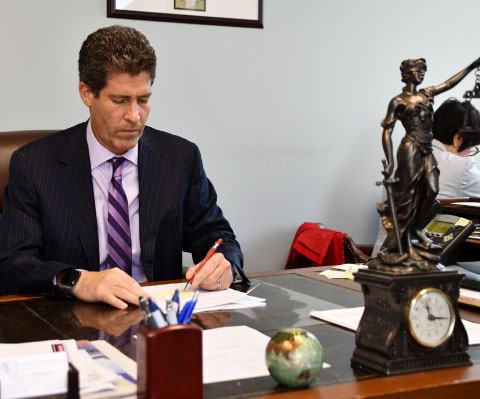What Should I Tell My Insurance Company after a Car Accident?
September 13, 2021

It is imperative that anyone who has been in a car accident attend to their medical needs before anything else. By attending to medical assistance immediately following an accident, that person may have a better report to file and claim. This will document any initial injuries noted early on rather than later, creating a starting point to build the case.
Any driver who has had a car accident needs to file a claim with their insurance company within 72 hours of the accident. This is to ensure that all the necessary paperwork will be filed promptly.
An insurance company agent will begin the process by asking for a detailed report. As the policy holder, you should know the basics of the case when it comes time for the initial report. For example, you need to state who was involved, how the car accident occurred, who were the witnesses on the scene, who has been deemed injured thus far, and what property has been damaged. This is not a time to dive into hard details and explanations; rather, it is a time to state basic facts with minimal follow-up. The agent will ask further questions if they see fit. It is significant to note the name of the representative and the confirmation number related to the claim.
What are the First Steps to Take after a Car Accident?
Immediately after a car accident, drivers should do the following:
- Check oneself for injuries
- Check the passengers
- Get to safety
- Call 911
- Wait for help
- Exchange information with the other driver
- Document the accident
- Notify insurance company and start claim process
How Should an Accident be Documented?
It is important to identify the police officer and take down everyone’s names, talk to witnesses, get a copy of the report, and take pictures. All this information is meant to be shared between the victim and their lawyer. The insurance company does not need all this information because it can be used to hurt the policy holder. The victim’s lawyer will discuss what is appropriate to share with the insurance company.
What if the Car Accident was Minor?
All accidents should be reported and recorded regardless of the severity of damages. However, it is not required in some states if there are no injuries. Some drivers avoid reporting minor accidents, owing to insurance rates increasing and assuming the drivers can work things out with each other and not involve insurance companies.
If both drivers decide to handle the situation on their own, they are taking the risk of trusting each other. Later on, one driver may decide they are actually injured or their car is damaged and file a claim with their insurance company without notifying the other driver. By doing this, the other driver will face consequences when their company sees they did not report the accident.
What Should Policy Holders Know?
Every auto insurance company in the United States requires their policy holder to immediately report any accidents. In failing to do so, it may result in substantial complications and penalties later.
Do I Tell My Insurance Company if I am at Fault?
When it comes to speaking to one’s car insurance representative directly, never admit fault to anything. When explaining what happened, just state the obvious facts and do not let details or emotions hurt the claim. This is because insurance companies tend to do anything to prove the policy holder unfit for compensation or is at fault, denying the claim and possibly increasing rates. In other words, anything said to a representative can be used against a driver to reduce their awarded claims and compensation.
A driver may not even be at fault or responsible for an accident, but they do not know it because not all the facts are available. Anything said to the other driver or witnesses can be used against one’s claim as well. It is best to keep most information private and share only basic facts with the insurance company. Details that cause emotional responses should be saved to share with one’s lawyer.
What Happens if I Do Not Appear to be Injured?
Although some injuries appear at the scene, others will not show until much later. Never claim that you are not injured because injuries can develop weeks or even months later. For example, back injuries or internal bleeding or even neck pain can be determined later and are substantial injuries to consider. If one’s claim states that there were no injuries and later they are reported, that statement can hurt the claim and these injuries may not be compensated.
Should I Make an Official Statement?
An official statement should not be made until the victim speaks with a car accident lawyer. Such a statement can damage a case. No driver should feel obligated to give a statement regardless of what the insurance company says.
How to Speak to an Insurance Representative
- Do not state that you do not have any legal representation if you are currently looking for a lawyer.
- Do not guess or assume when answering questions. If an answer is unknown, say that you do not know. It is an acceptable answer and will not cause complications later.
- Do not offer opinions or emotional claims.
- Do not estimate or state that you assume something about a detail because this leaves room for error.
- Do stick to the facts of the case.
Philadelphia Car Accident Lawyers at Nerenberg Law Associates, P.C. Advocate for Victims
If you or a loved one was injured in a car accident, reach out to the Philadelphia car accident lawyers at Nerenberg Law Associates, P.C. Our legal team can help you seek compensation for your medical expenses, pain, and suffering. Call us today at 215-569-9100 or contact us online for a free consultation. Located in Philadelphia, we serve clients throughout Pennsylvania and New Jersey.

